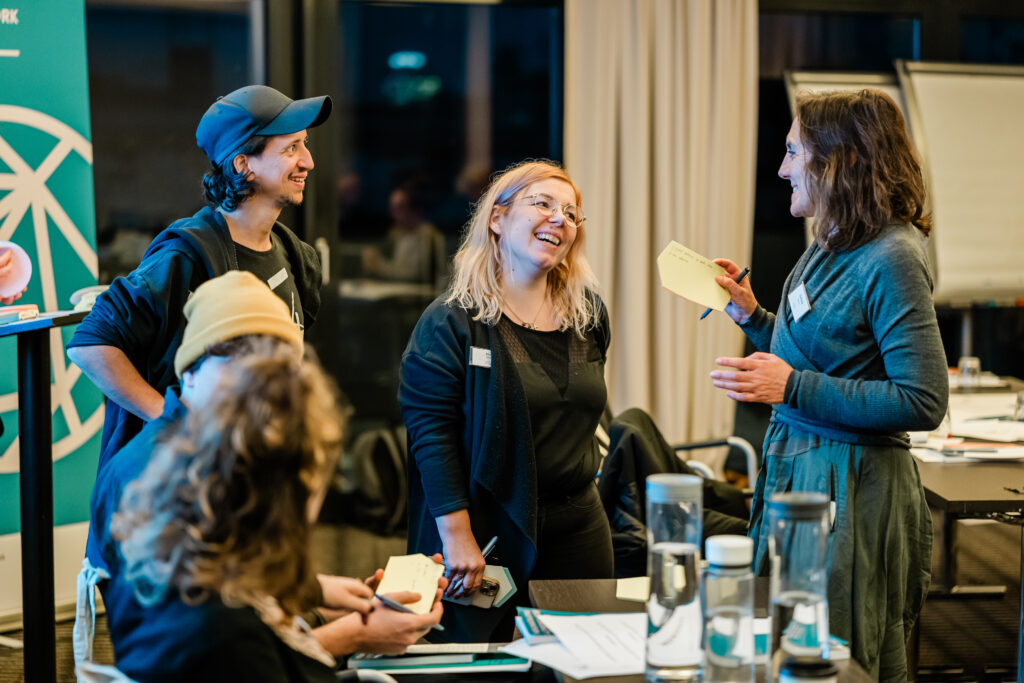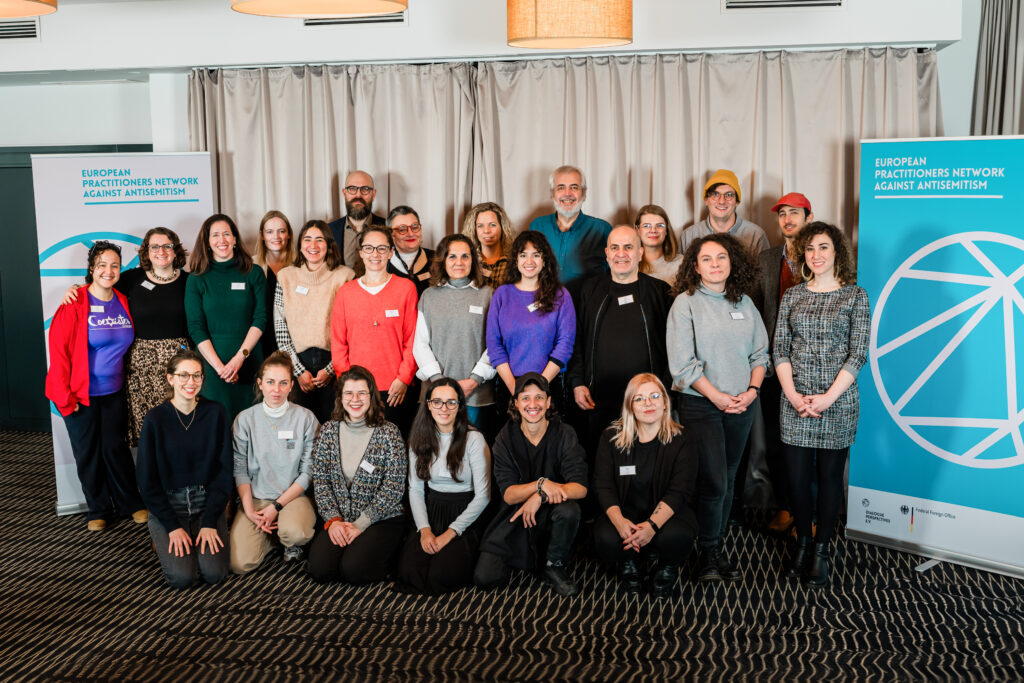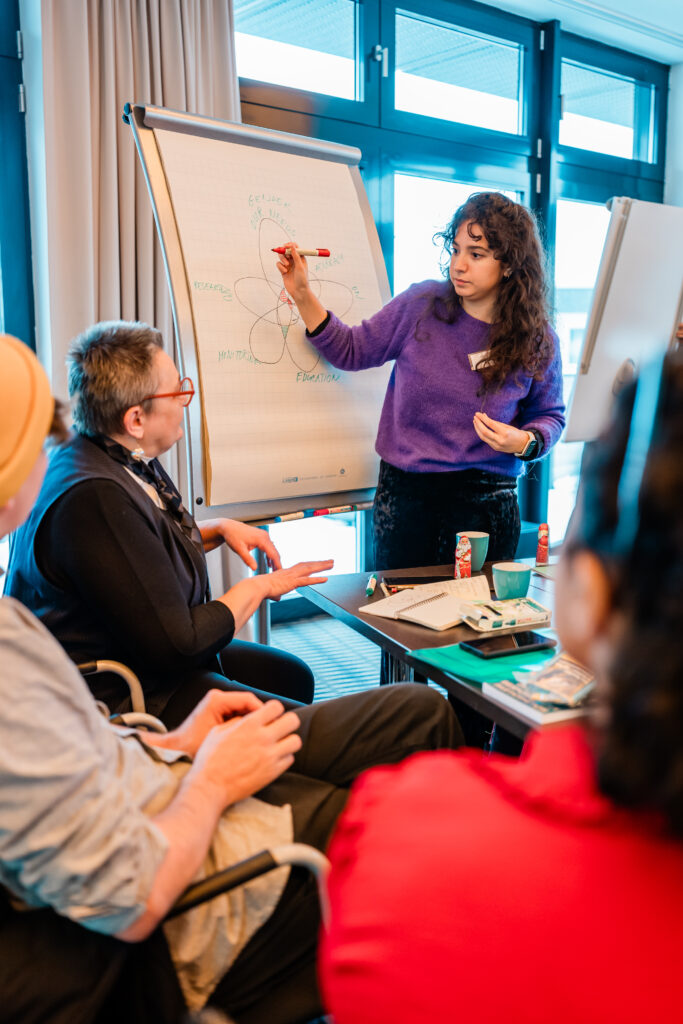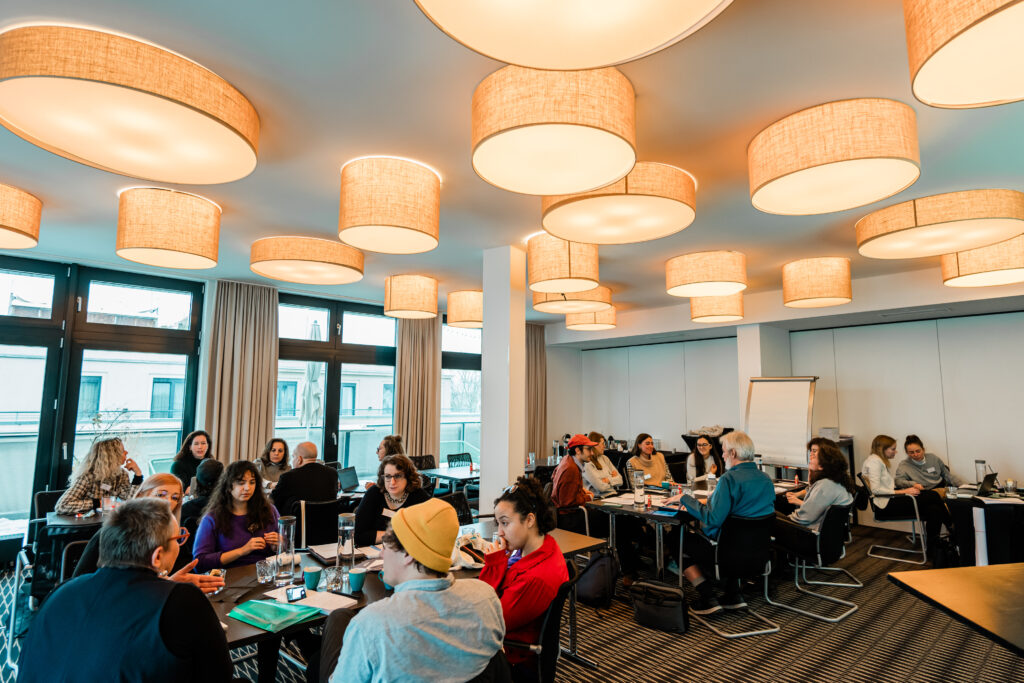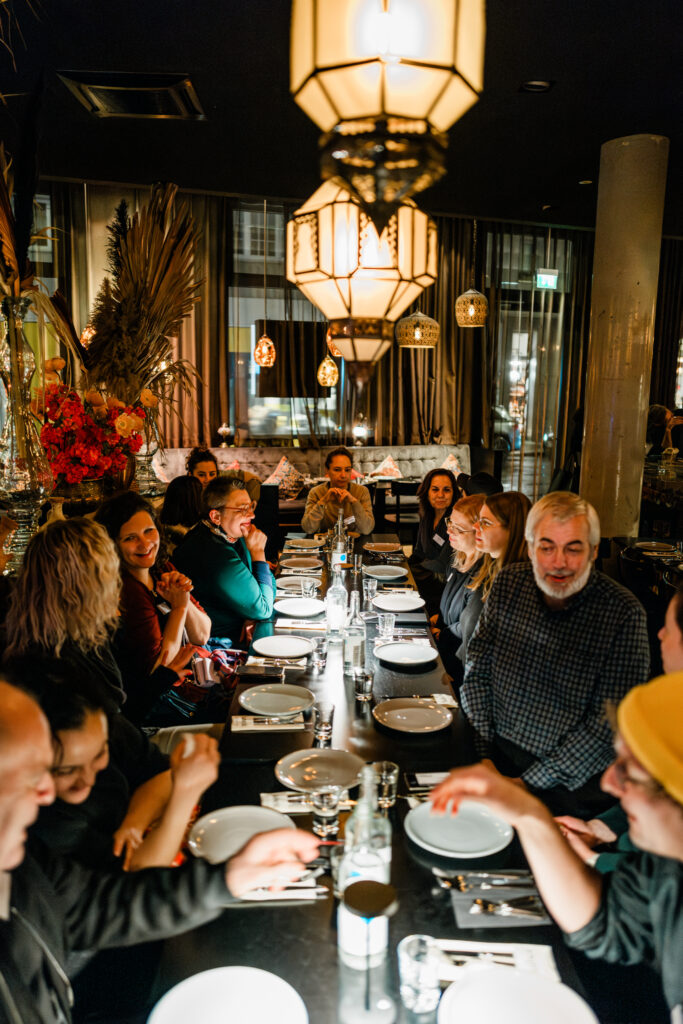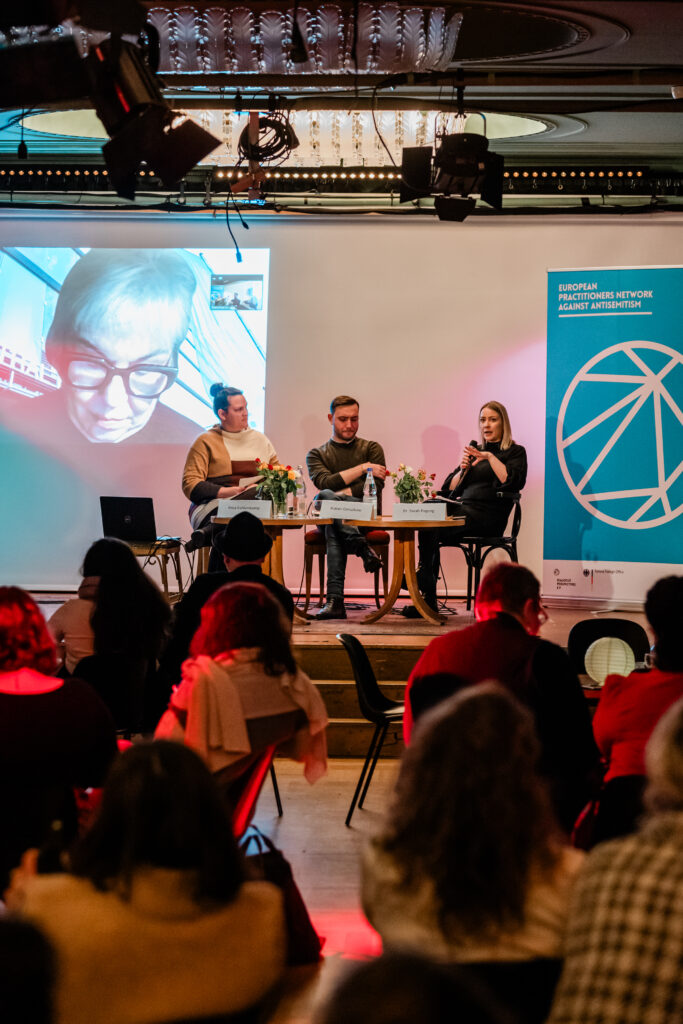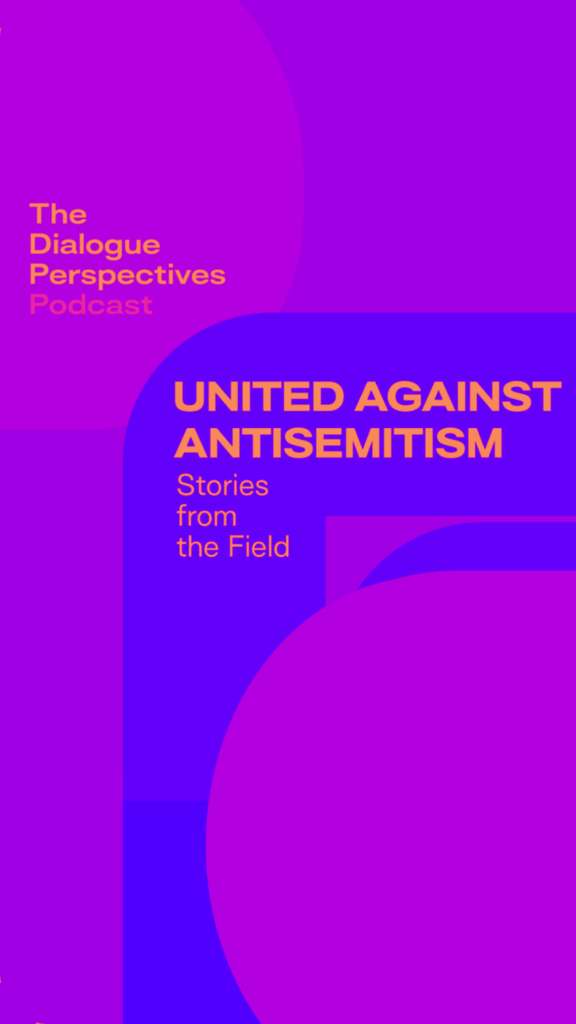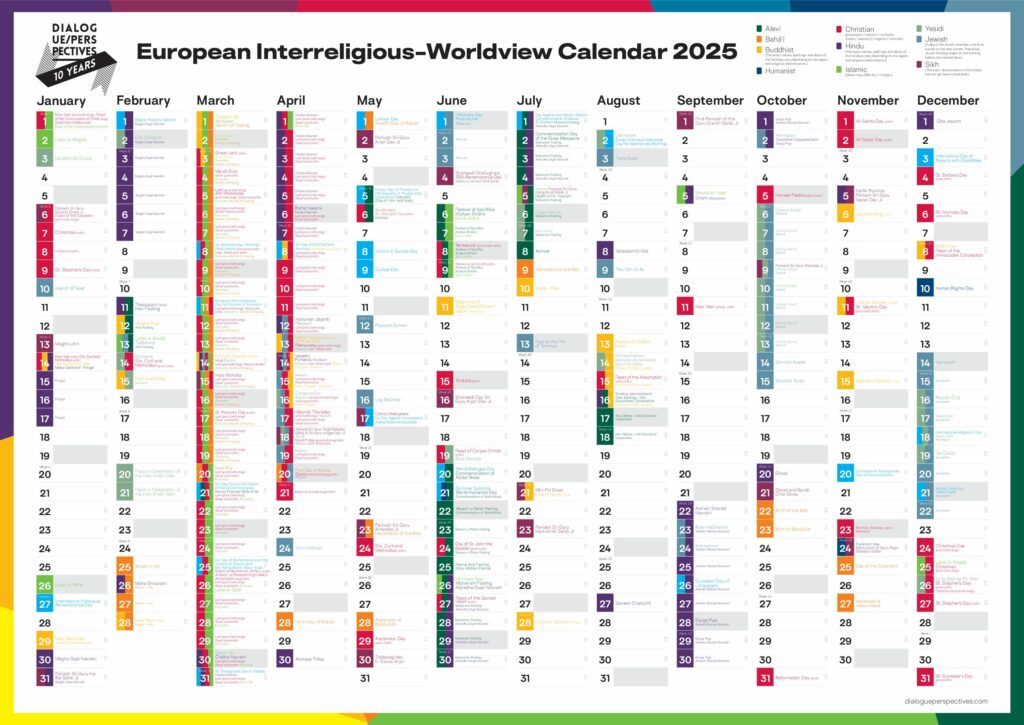Against the backdrop of the Hamas terror attacks and the ongoing war in Israel and Gaza, an enormously important event for DialoguePerspectives e.V. took place from 5–7 December: Representatives from 20 member organizations of the European Practitioners Network Against Antisemitism (EPNA) convened in person in Berlin, marking a pivotal shift from their regular monthly and bi-weekly virtual check-ins in recent months.
Established in April 2023, EPNA seeks to promote enhanced collaboration in the fight against antisemitism and racism at the European level. The three-day workshop, titled ‘Hands-On Against Antisemitism – Strategies in Countering Antisemitism in Times of Polycrisis,’ represented the inaugural face-to-face meeting of the network. It provided members with a platform for dynamic exchange, collaboration, and an opportunity to take decisive actions in pursuit of their shared goals.
The individual accounts provided by network members paint a disturbing picture. Throughout Europe, there has been a significant surge in anti-Semitism since October 7th and the ensuing conflict, posing an alarming threat that at times renders the efforts of network members almost unbearable. Although addressing such escalation was not the initial focus of the professional network, it has become increasingly evident how crucial the network is and can continue to be in fostering collective resilience and shared solace rooted in solidarity. Our commitment is to further fortify this level of work in the future.
Throughout a variety of moderated working sessions, the network members had the opportunity to learn more about the other network members. Beyond sharing insights into their respective countries’ situations, network members explored their diverse approaches to countering antisemitism. Together, they mapped their collective expertise, resources, and local partner networks, fostering a deeper understanding of the network’s potential and synergies.
The workshop also offered the participants an opportunity to discuss the challenges they face in the current political climate in Europe. They jointly reflected on the impact that the 7 October attacks and their aftermath have had on their work and shared their different strategies for coping with these effects and adapting their programmes. In particular, they shared the highly emotional nature of their discussions within their respective communities and underlined the imperative of safeguarding the situation against instrumentalization for the sake of political agendas.
On the second day of the workshop, network members met with their working groups to discuss their best practices, challenges, and opportunities for collaboration in more detail. The four EPNA thematic working groups were created to unite organisations with similar expertise in the areas of 1) Holocaust education, 2) addressing antisemitism in schools and universities, 3) intersectionality with misogyny, racism, and conspiracy ideologies, and 5) online antisemitism. The deep-dive sessions allowed the participants to exchange best practices, to identify challenges, and to explore opportunities for collaboration. The afternoon was dedicated to transforming these discussions into tangible project proposals, thus laying the groundwork for potential funding via EPNA’s micro-grant programme for bilateral and multilateral cooperation.
A noteworthy highlight was the evening’s panel discussion at the Grüner Salon at the Volksbühne Berlin. The panellists included Prof. Dr Andrea Petö from the Central European University (CEU), Dr Sarah Pagung from the Körber Foundation, and the Jewish journalist and author Ruben Gerczikow. They explored the strategies employed by illicit actors to spread antisemitism, racism, conspiracy ideologies, and misogyny for their political gain. Using the examples of Russia, Hungary, and Germany, they highlighted the intersection between misogyny and antisemitism in far-right ideologies and analysed recent developments in these areas.
The workshop concluded with several meetings with representatives from the German organisations RomaTrial, RIAS (Research and Information on Antisemitism), and Schalom & Salam.
The participants left the Berlin workshop with ideas and concrete plans for joint projects, new connections, and a strong sense of community and solidarity. The network will continue to grow and convene in regular online meetings, with the next in-person meeting to be held in March 2024.
Photo credit: © EPNA/DialoguePerspectives e.V., 2023
